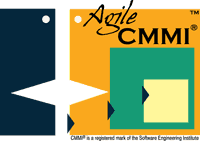Sorry, folks, no fun (or not-so-fun as you may prefer) video today. Not even any pictures I took at SEPG. In fact, as far as today went, I don’t have much to report from the sessions.
Again, I missed the plenary session. This time on account of a phone meeting with a client in another time zone. So, my first session to attend was the other of my two collaborative efforts with Judah Mogilensky on SCAMPI Evidence from Agile Projects. As anything with Judah in it, it went rather nicely. Many generous bits of feedback. I felt really good about my role, and Judah was his usual incomparable self.
My friend and colleague, Eileen Forrester of the SEI was kind enough to give me some supremely powerful feedback. I am, and will be, grateful for it. I was then roped into shop talk about CMMI for Services in advance of the 2nd half of the orientation workshop I’m helping her with. Thus, my missing out on my buddy, Jeff Dalton’s, excellent (so I’m told from many reports) job with Encapsulated Process Objects.
One point made to me later by another of the few “agile-friendly” lead appraisers, Neil Potter, about a bit of content in the presentation does require some follow-up. In the presentation we short-cutted the details on a discussion regarding the potential design aspects of test-driven development with an engineering design. I should say that TDD is NOT the same as a design, but that depending on how TDD is planned and performed, it can include design-like attributes which could accomplish design expectations in the engineering process areas of CMMI-DEV. So don’t anyone out there go around blabbing some “Hillel said TDD is Design!” crap. Mm’K?
After lunch, my job was to keep people from falling asleep with a session on Love and Marriage: CMMI and Agile Need Each Other. From the response, I think it went went rather well. I, personally, was quite pleased with how it came off from a “talk per slide” metric. A good friend, Tami Zemel, later admitted that she “takes back” her earlier criticism of Monday’s presentation. She said it had too many words and didn’t believe me when I told her why. She complemented not only the picture-centricity of today’s pitch but also the delivery, style, and content. That was very generous, thank you.
From then to the end of the day, I spent scheming, strategizing, shmoozing, and networking with too many people to mention. (No offense.) A client who came to the conference (who never holds back and only inflates the truth when it’s funny to do so) got very serious when a prospect I’d recently met off-the-cuff asked whether he’d recommend me. I won’t repeat his answer because it really was just crazy nice. Today’s interesting photo is in his honor. (And also because my boys love transportation.)
The last “session” was a Peer 2 Peer double-header on the topic I mentioned on Monday which I co-created with Michele Moss. She and I are also on the SEPG Conference Program Committee. We used the feedback and other data from the Peer 2 Peer as input to a retrospective on this year’s conference, which will be used for strategies for next year’s conference in Portland, OR.
You can also read an entry I gave to the SEI for their official blog about my impressions of this year’s conference-goers.
Dinner conversation back at the hotel with Michele was back on the subject of our Peer 2 Peer session. Net result: We single-handedly wrote the 1-3-5 year plan for all SEPG’s. Or at least we think so. ![]()



